- Interview CEO
- Vetropack Locations
- Market environment offering opportunities and challenges
- Business model
- Strategy 2030
- Management Structure
- Organisation
- Col2
- Material Topics and Performance Review
- Customers and suppliers
- Finances
- Innovation and intellectual property
- Production and products
- Employees
- Environment
- Col3
- New designs
- Financial Report
- Col1
- At a Glance
- Financial Report Vetropack Group
- Consolidated Balance Sheet
- Consolidated Income Statement
- Consolidated Cash Flow Statement
- Changes in Consolidated Shareholders’ Equity
- Consolidation Principles
- Valuation Principles
- Notes
- Ownership Structure
- Company Participations
- Report of the statutory auditor on the consolidated financial statements
- Five Year Overview
- Col2
- Financial Report Vetropack Holding Ltd
- Balance Sheet
- Income Statement
- Notes
- Board of Directors’ (BoD) Proposal for the Corporate Profit Appropriation
- Report of the statutory auditor on the financial statements
- Five Year Overview
- Corporate Governance
- Col1
- Introduction
- Board of Directors
- MB Members
- Remuneration and Additional Information
- Shareholders’ Participation Rights
- Auditors
- Information Policy
- Contact Address
- Remuneration Report
- Col1
- Introduction
- Principles of the Remuneration Scheme and its Components Audited Information
- Organisation and Authorities for Determining Remuneration
- Description of the Remuneration Components
- Board of Director’s Remuneration
- Management Board’s Remuneration
- Comparison of Remuneration disbursed with the Remuneration approved by the 2018 and 2019 Annual General Assembly
- Shareholdings
- Report of the statutory auditor on the remuneration report
- Sustainability Report
- Col1
- Sustainability Report
Foundations for success
New designs
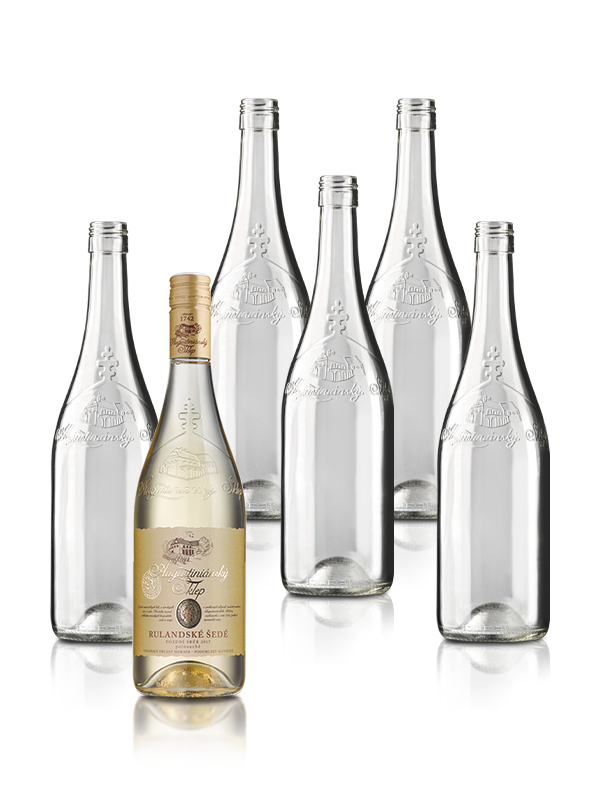
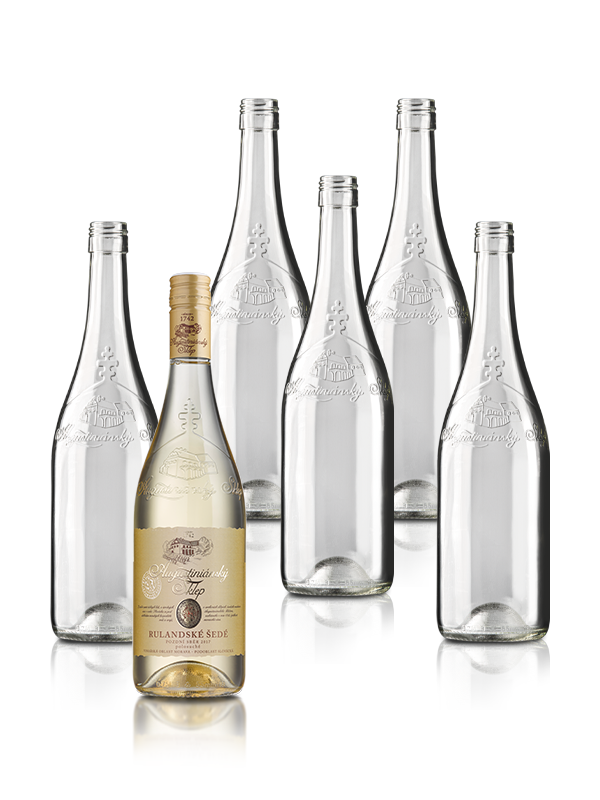
Elegant
Traditional and modern
They have been making wine at the Augustinian monastery in the town of Šardice in South Moravia since the middle of the 18th century. The Czech Vetropack plant in Kyjov makes the 0.75-litre glass bottles for the “Augustiniánský Sklep“ wine.
“Augustiniánský Sklep“ wine is shown off beautifully in this flint glass bottle. The clean lines of the redesigned 0.75-litre glass bottle are simple and eye-catching. Equally eye-catching is the embossed design above the elegant label. It is inspired by the building where the Augustinian wine is made and echoes the flowing script of the name Augustiniánský Sklep.
The NEOKLAS Šardice a.s. wine business was founded in 1995. The centuries-old tradition of growing and making wine in the region of Moravia has been practised since then. Wine was first made at the Augustinian monastery in Šardice in the middle of the 18th century. The winery is constantly modernising its production methods while remaining true to the traditional ways of cultivating the vines.
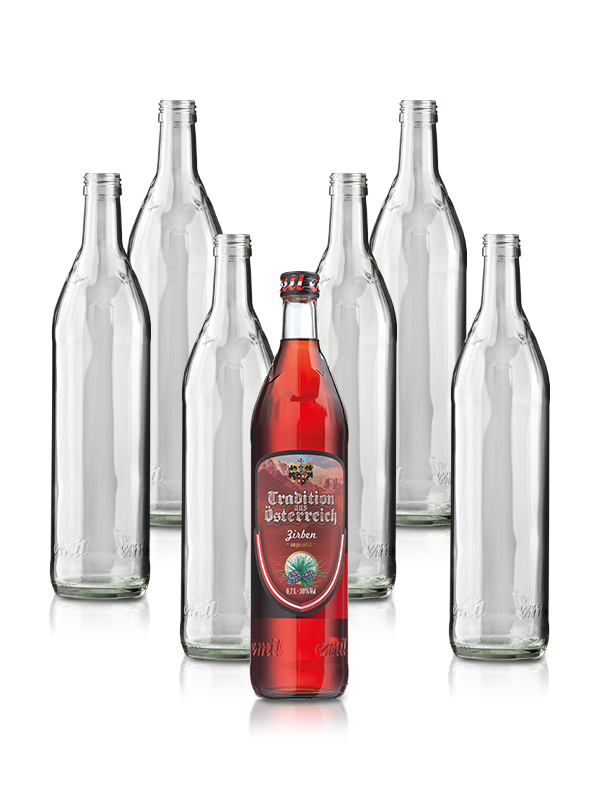
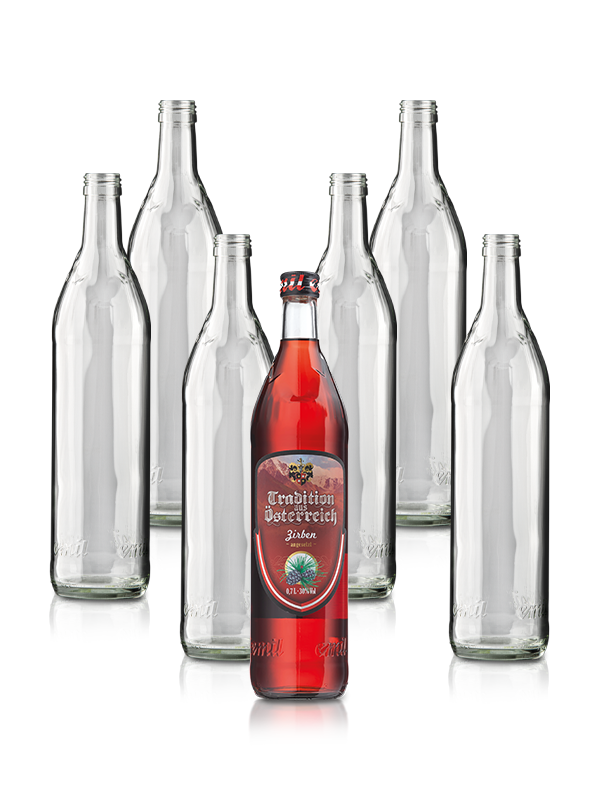
Assortments of flavours
Rasperry spirit
Vetropack Austria is making a new 0.7-litre flint glass bottle at its Pöchlarn plant for the Upper Austrian spirits producer emil-Spirituosen. This new bottle will showcase the company’s array of different kinds of schnapps superbly.
The glass experts at Vetropack’s Austrian plant in Pöchlarn worked closely with distiller Emil Stegmüller to design the new 0.7-litre screw-cap spirits bottle. The “emil” logo, which appears engraved in lower case four times around the bottom of the bottle, immediately draws your attention. Starting from the bottle’s shoulder, mountain peaks tower right up to the neck and add an extra tactile touch to the mountains printed on the label.
emil-Spirituosen’s 0.7-litre bottle is available filled with countless flavours and can only be found on the shelves in the retail sector. The family business has been distilling spirits in the traditional way and adding modern touches to the end product for 150 years now.
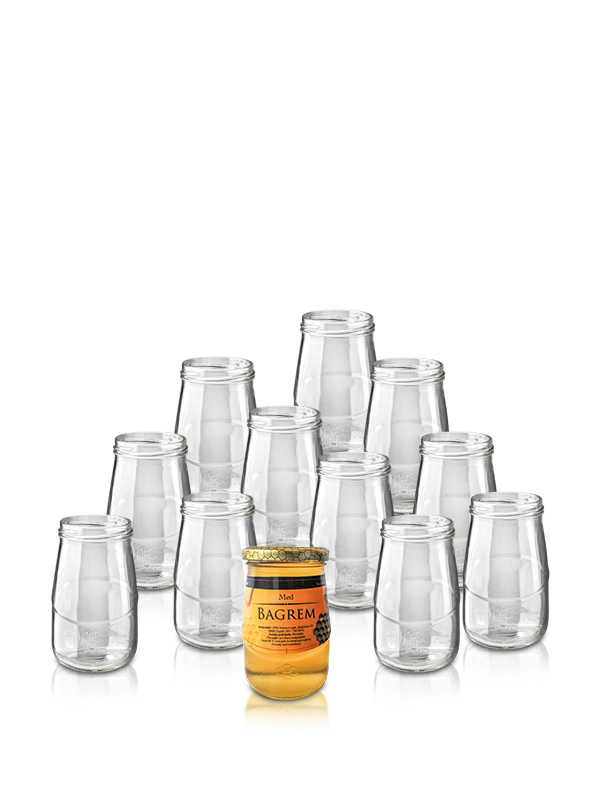
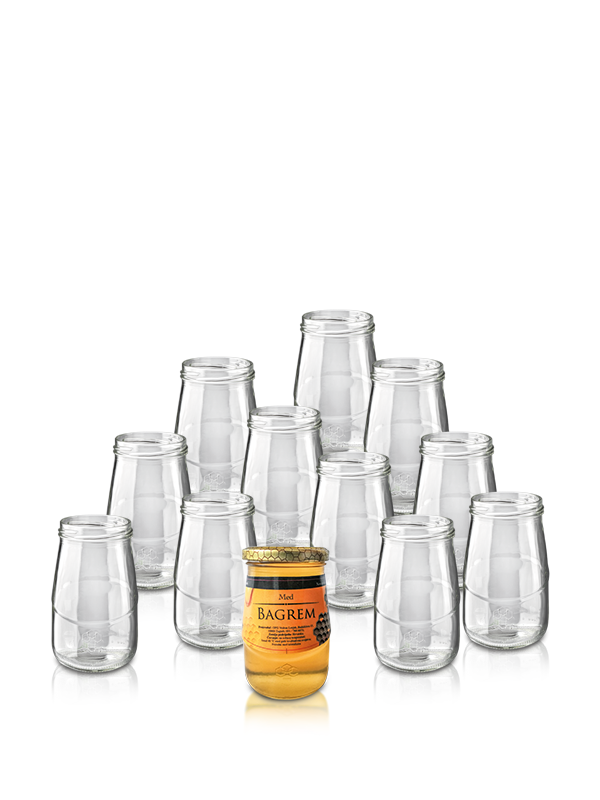
Sweet
Honey from Croatia
The two clear wide-mouth jars that Vetropack Straža makes are reserved only for honey from Croatia. Each jar must be officially registered and bear the label of the Croatian Beekeepers’ Federation.
Vetropack Straža produces the wide-mouth jars in two sizes for the Croatian Beekeepers’ Federation: 720 millilitres and 580 millilitres. Two more (smaller) sizes are being developed. The design has been kept simple, with a small, engraved honeycomb motif on the front.
The flint glass jars can only be filled with honey that meets the quality standards of the Croatian Honey Regulations. Among other things, it must come from Croatia itself and bear the producer's own label. In 2018, 7 December was declared Honey Day in schools. That is the saint's day of St Ambrose, the patron saint of beekeepers, and it is also International Honey Day. All the children who had just started school in Croatia were given a jar of honey.
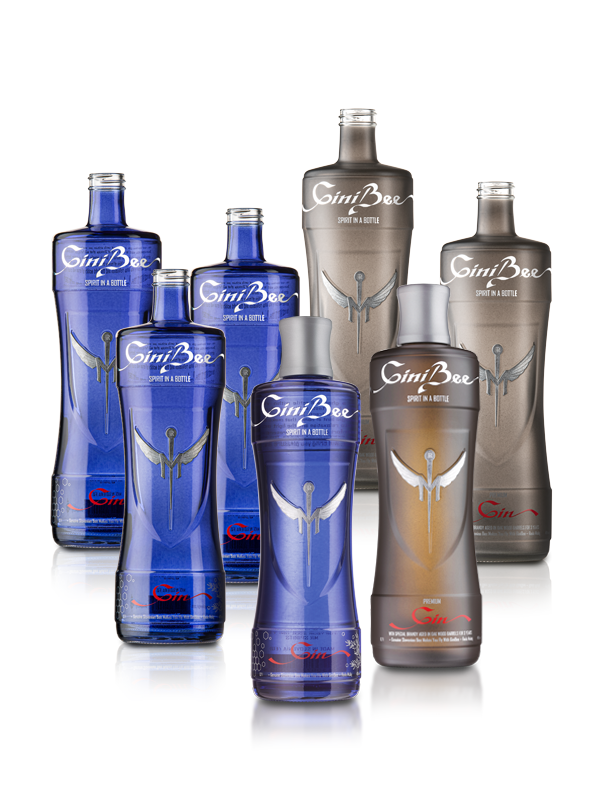

Strong
Gin with honey
Für den GiniBee-Gin der Firma MR SPIRITS d.o.o. in Slowenien fertigt Vetropack Straža die weissen 0,7-Liter-Flaschen. Mit dem extravaganten Design hebt sich die Spirituose von ihresgleichen ab.
Not only is the recipe for GiniBee gin full of mystery, but also the design of the flint glass bottles. A thin blue coating gives the 0.7-litre glass bottle a very distinctive appearance and a luxury feel, without losing the properties that make glass unique. An additional feature is the special UV print that protects the gin from UV light. The middle of the waisted bottle is decorated with an overprinted company logo in relief.
This particular spirit, distilled from juniper berries, has an especially sweet extra ingredient. Twenty per cent of the berries are soaked in Slovenian honey before being added to the gin. The company was founded by Rado Mulej, who is a well-known actor and television presenter in Slovenia.
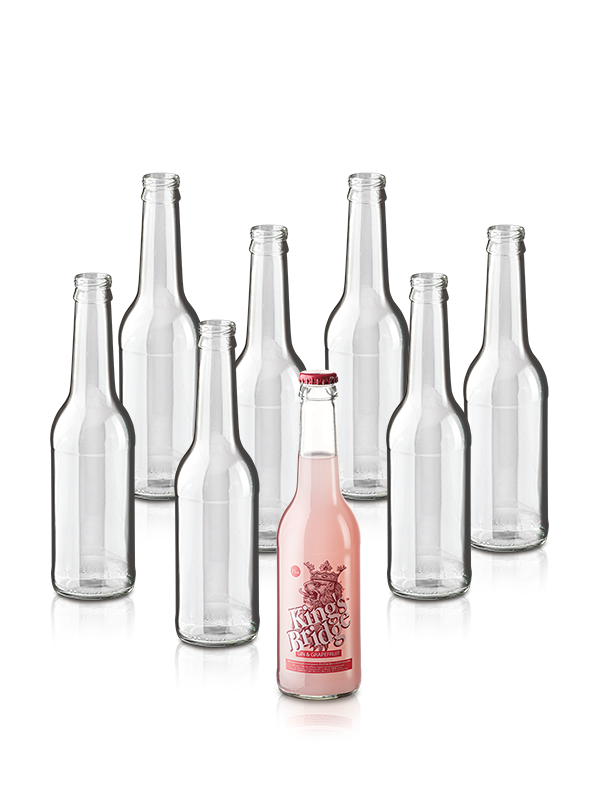
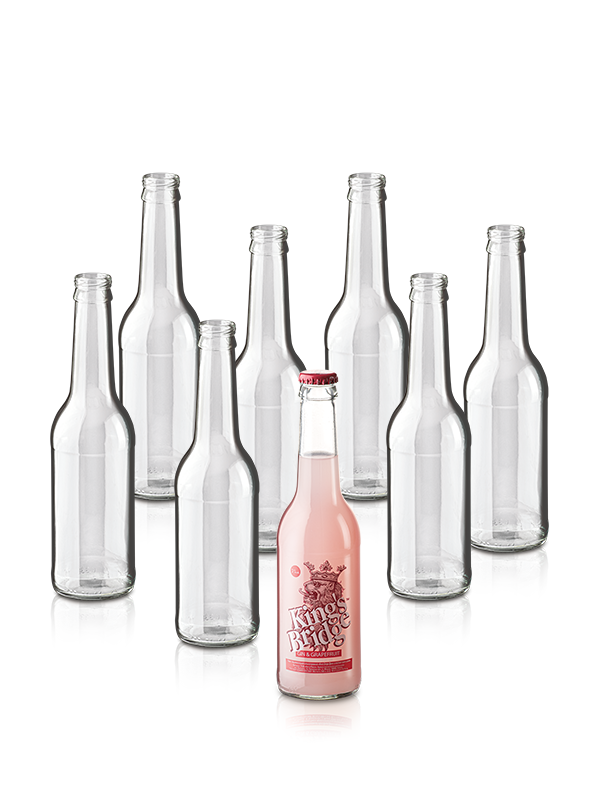
A royal affair
Refreshing juniper
King’s Bridge™, a drink extremely popular in Ukraine, is changing its look. As of this year, the low-alcohol, gin-based mixed drink is also available in a 0.33 ml white glass bottle, manufactured at Vetropack’s Gostomel plant.
The Ukrainian manufacturer King’s BridgeTM reviewed its production line earlier this year and made a few adjustments. Previously, the gin-based mixed drink had only been available in cans. An agreement was reached with Vetropack’s Gostomel plant to manufacture 0.33 ml white glass bottles. The elegant long-necked bottle is a good match for an urban attitude to life. The transparent label also heightens its effortless style, and a twist-off crown cap finishes the look.
The three different flavours are complemented by King’s Bridge Gin, specially produced for this brand. Consumers are presented with a low-alcohol sparkling drink with a unique and refreshing taste and the fragrance of juniper characteristic of gin.
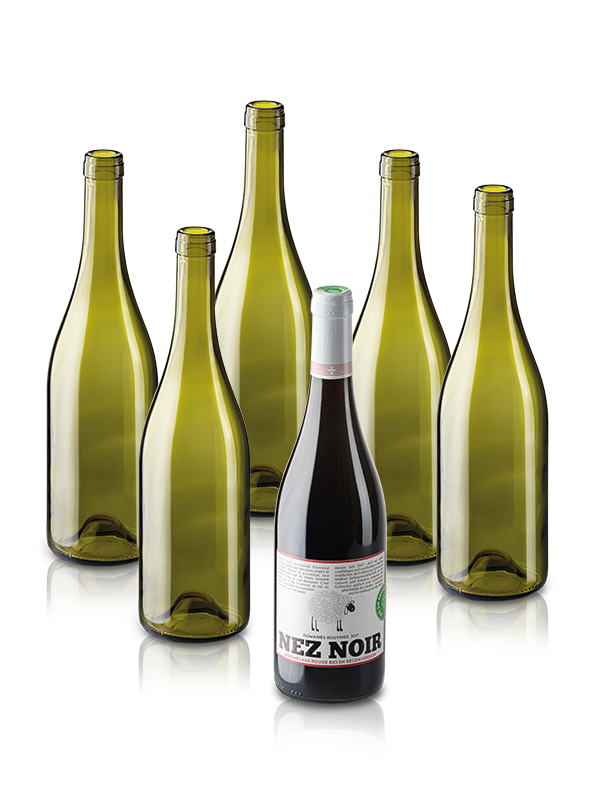
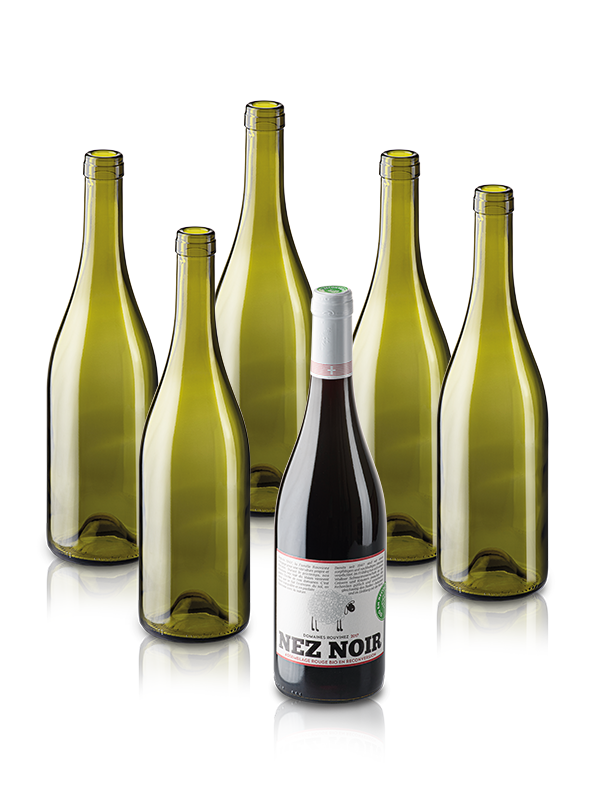
Environmentally friendly
Total sustainability
Vetropack Switzerland produces this cuvée-coloured 75-centilitre burgundy bottle for the first organic red wine made by the Rouvinez winemaking family from Valais. The lightweight bottle plays a part in “Nez Noir” being generally acknowledged as one of the most environmentally friendly wines in Switzerland.
The burgundy-style bottle is distinguished by its light weight. Less material and energy are required to manufacture it. The distance from St-Prex to the bottling plant also reduces CO2 emissions.
The Rouvinez family began the switch to organic wine a few years ago. “Nez Noir” (“black nose”) is the first wine to bear the “Bio-Umstellung” organic label. The wine is a blend of merlot, syrah and gamaret and is named after the Valais Blacknose sheep. In spring, these sheep graze happily on the grass and weeds between the vines. This means that the soil is maintained gently and in perfect harmony with nature.
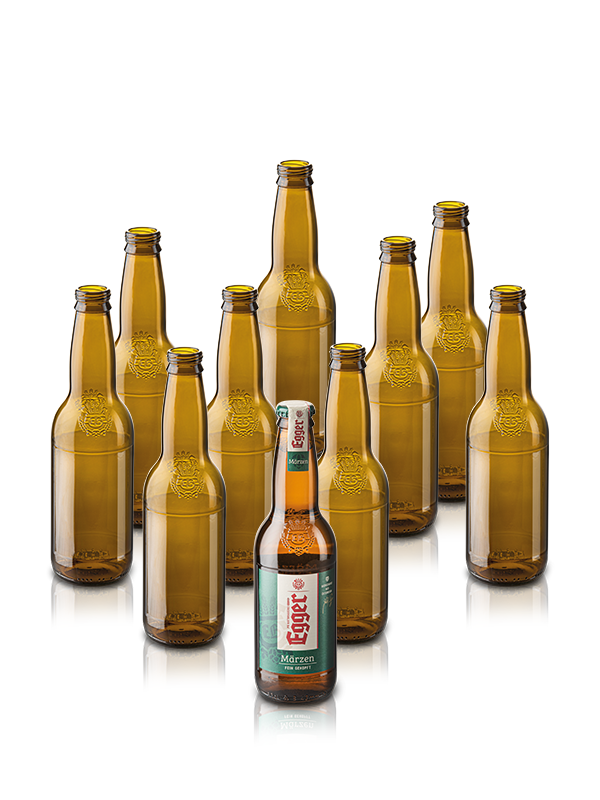
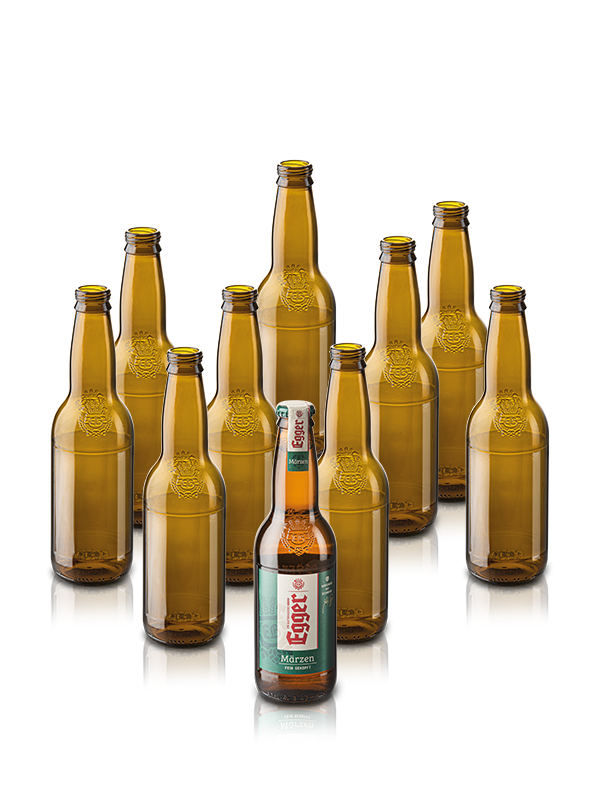
Fit for the future
Tasty and attractive
The roots of today’s privately owned Egger brewery date back to the 17th century. Vetropack Austria manufactures the new 0.33-litre bottles in amber glass for the traditional brewery in the Kremsmünster plant.
The privately owned Egger brewery from Unterradlberg in the Lower Austrian town of St. Pölten focuses on further development of its beer products in a contemporary yet down-to-earth way. All containers have undergone a comprehensive design relaunch. The 0.33-litre glass bottle harbours particular growth potential, and Egger has devoted special attention to this product. The neck of the easy-to-hold amber-glass bottle is engraved with the old brewery crest.
A really good beer in really attractive packaging: the high quality of the multi-award-winning beers is now emphasised with the new packaging. The new design succeeds in linking tradition and modernity. This is reflected in scaled-back design elements such as a simplistic freshness seal that acts as a neck label and a twist-off crown cork.
The privately owned Egger brewery brews its beer in accordance with the German Purity Law of 1516. This means its beers are brewed in the same way as ever – with only hops, water and barley malt. Most of the brewery’s total output is sold in Austria and the rest is exported.
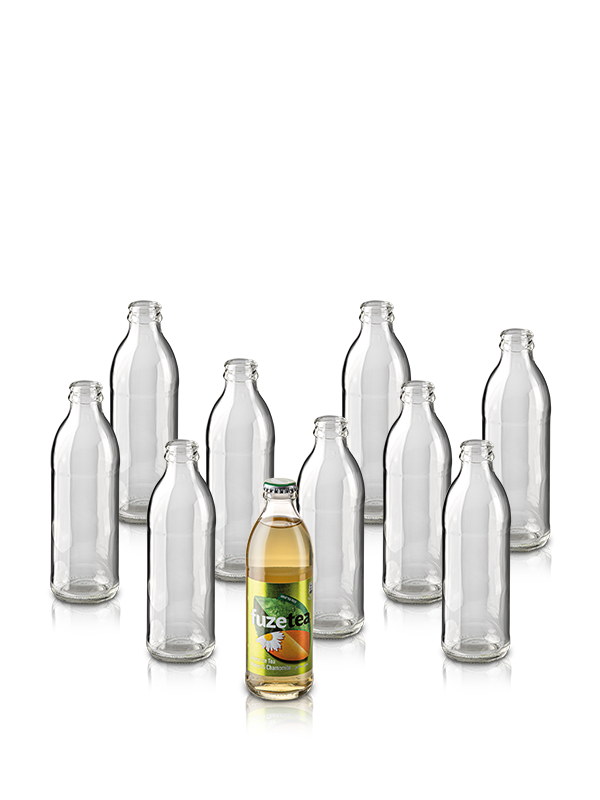
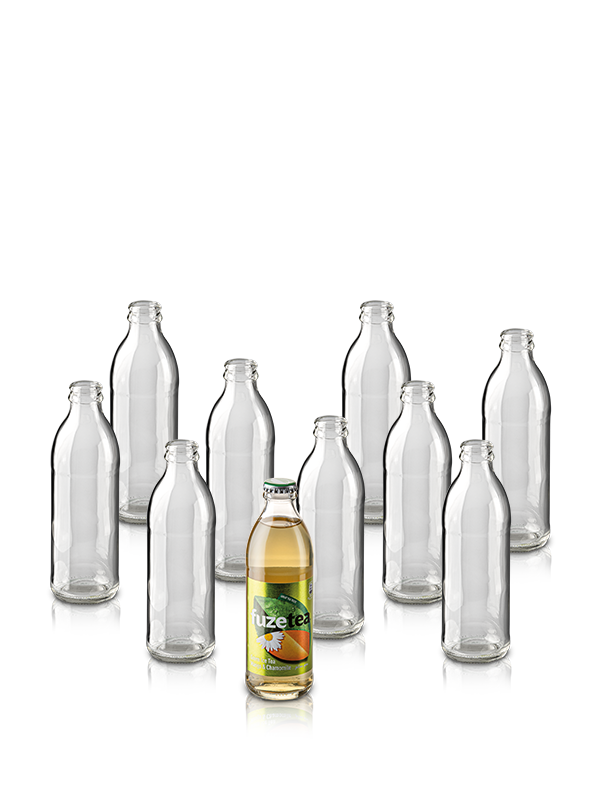
Refreshing
A fusion of select ingredients
Early last year Coca-Cola launched its premium “Fuzetea” brand on Europe’s markets, including the Czech Republic and Slovakia. Vetropack Kyjov is responsible for making the new 0.25-litre multi-trip bottle.
The new 0.25-litre multi-trip bottle for Fuzetea has been exclusively designed for Coca-Cola. The handy bottles are produced for the catering trade in response to market requirements. The first multi-trip bottles reached Czech and Slovak consumers in June, just in time for summer.
The globally successful, fast-growing range of Fuzetea drinks is based on a fusion of sustainable tea extracts with fruit juices and herbs or aromatic flowers. With each variety, this fusion offers a multi-layered taste experience for relaxing moments, be they conjured up by subtle aromas such as green mango and camomile iced tea, black iced tea with lemon and lemongrass, black iced tea with peach and hibiscus or low-calorie options.
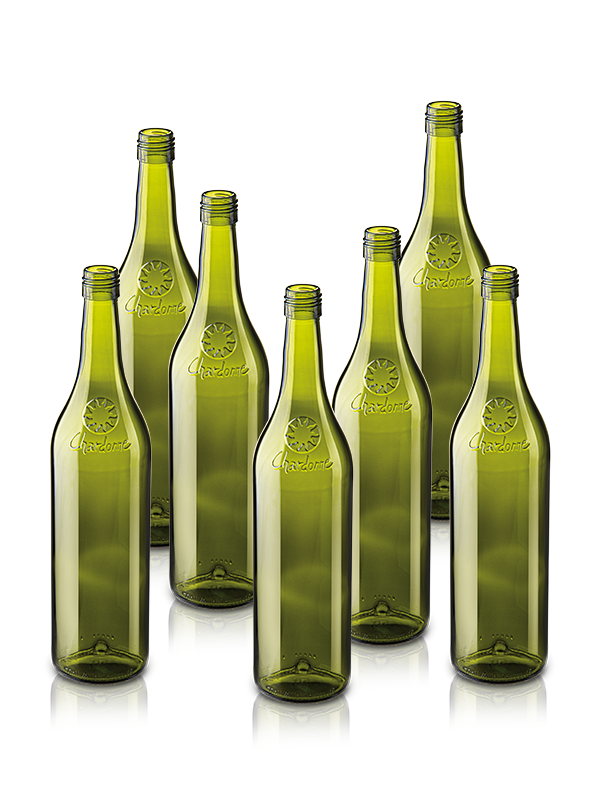
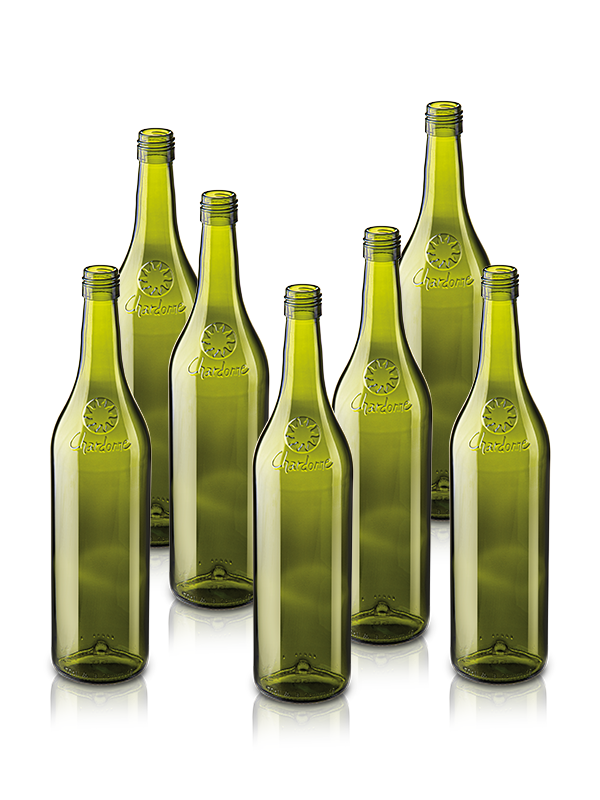
Silky-smooth
The sun rises
The Lavaux terraced vineyards are a UNESCO World Heritage Site. Their sunny location makes the steep slopes above Lake Geneva one of the most beautiful wine-growing regions in Switzerland delighting passing visitors and artists alike.
Vetropack Switzerland produces this slightly conical 0.7 litre bottle. The sun logo, which is engraved on the neck of the new Vaudoise bottle with a BVS 28/44 mouth, echoes the sun-kissed growing region. The logo and hand-written “Chardonne” lettering were created by Vetropack designer Jean-Franck Haspel: in 2003, the winner of the Prix Vetropack got to design his own bottle, and it is this Vaudoise with its high cork finish that is still in use today. The design is owned by the “the Syndicat agricole et viticole de Chardonne et Jongny société coopérative”, which is based in Chardonne, in the Canton of Vaud.

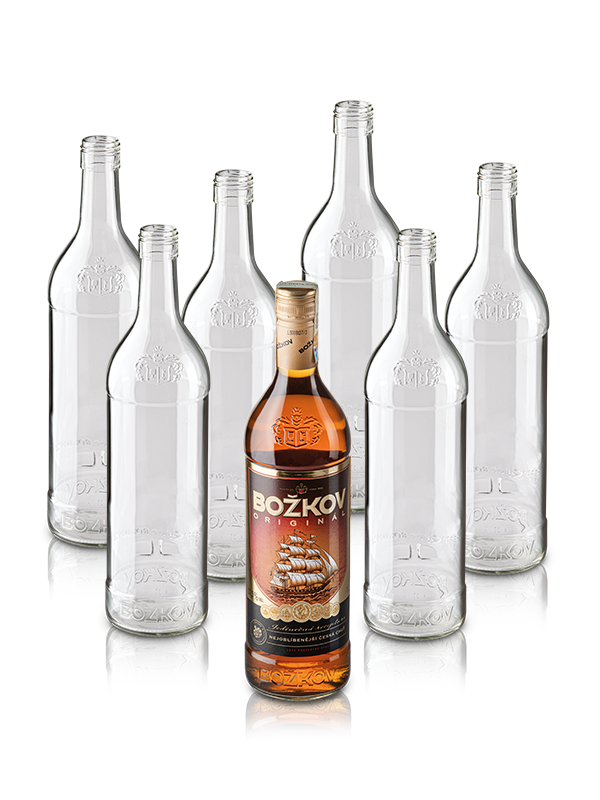
Tender
The traditional design
In the Czech Republic, Božkov Originál has been associated with good quality and tradition for decades. Vetropack’s Czech plant in Kyjov manufactures the 1-litre bottle for the golden-yellow Tuzemák.
The traditional bottle for Božkov Originál is made from white glass. The label takes pride of place between two engravings – the company logo on the neck and the brand name on the base. The third engraving highlights the decades-long tradition.
Božkov Originál (previously called “Domestic Rum”) has been produced at the Czech distillery Stock Plzeň-Božkov s.r.o. since 1948 and it is the biggest brand on the whole market. Its virtually unchanged make-up, comprising the finest alcohol, soft Pilsen water and different rum flavours give the drink its balanced taste. The best-selling Tuzemák in the country can be enjoyed neat but also with mixers or in baking.
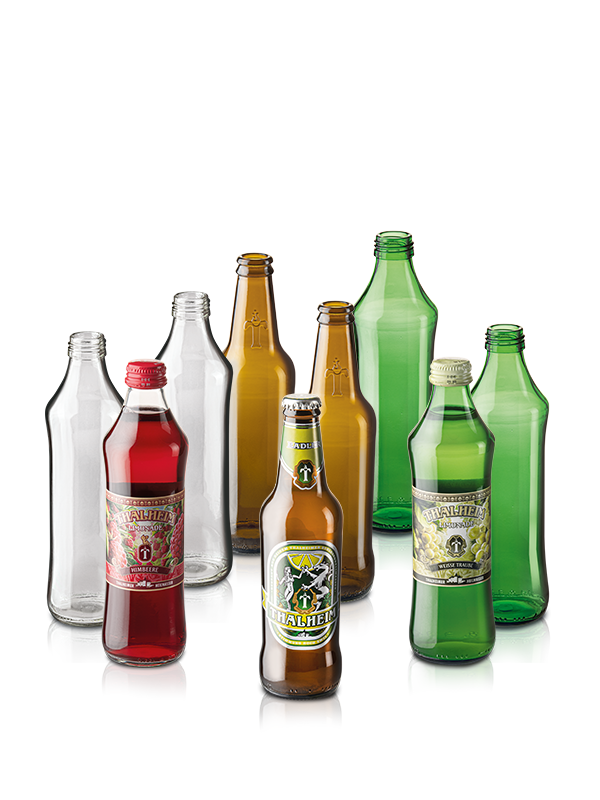
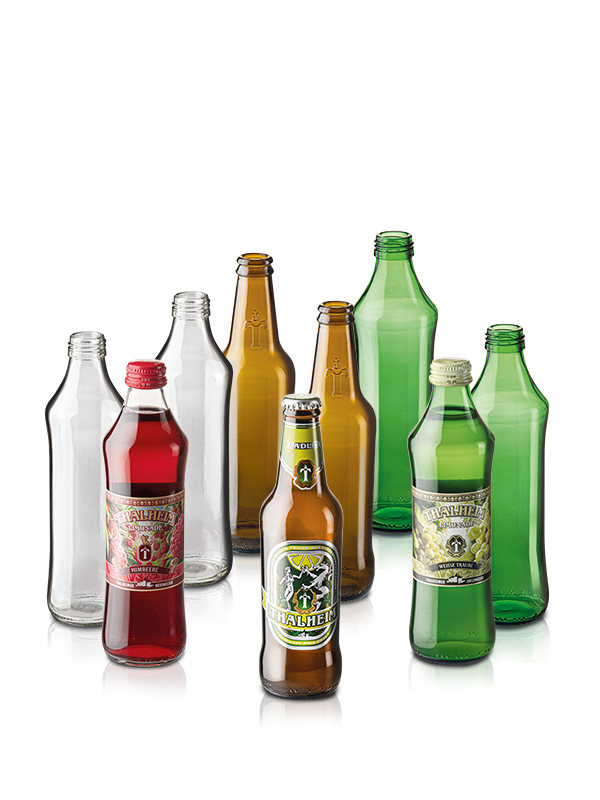
Colorful
Pure and healthy
Spa water from the Schlossbrunnen springs in Thalheim is not only enjoyed in its pure form but is also used as an ingredient in brewing beer and making lemonades. Vetropack Austria produces white, green and amber glass bottles for Thalheimer Heilwasser GmbH
The 330 ml amber glass bottle provides maximum protection from light for Thalheim beer. The back of the bottle neck is adorned with a glass relief in the shape of the company logo. Besides its visual appeal, this helps to align the bottles for filling and labelling. The labels on the front, back and neck of the bottles are mainly green, the colour of the province of Styria.
The various flavours of Thalheim lemonade are also enhanced by the highly mineralised spa water. Vetropack Austria produces 330 ml bottles in white, green and amber glass. The bottle shape features a long body and distinct shoulders. The same white glass bottle for the lemonade is used for the spa water itself, which has been used since Celtic times, although this is also available in a 750 ml bottle as well as 330 ml.
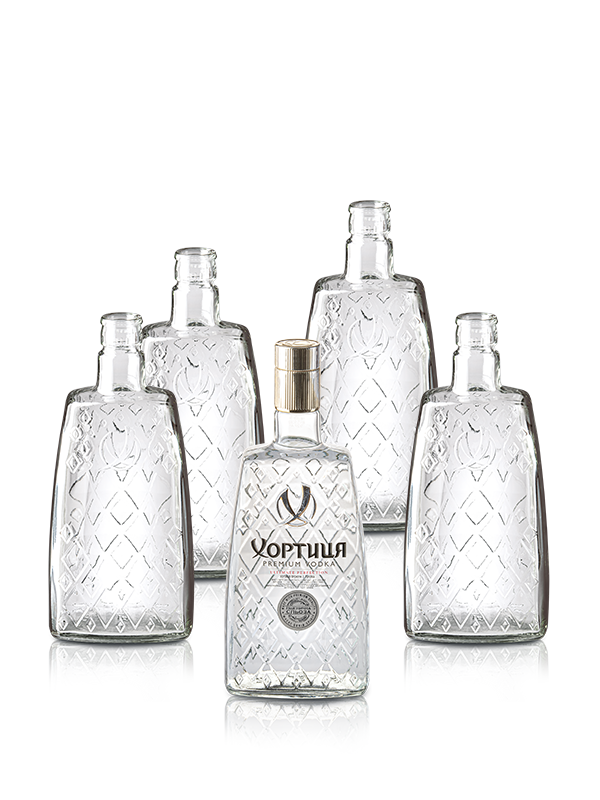
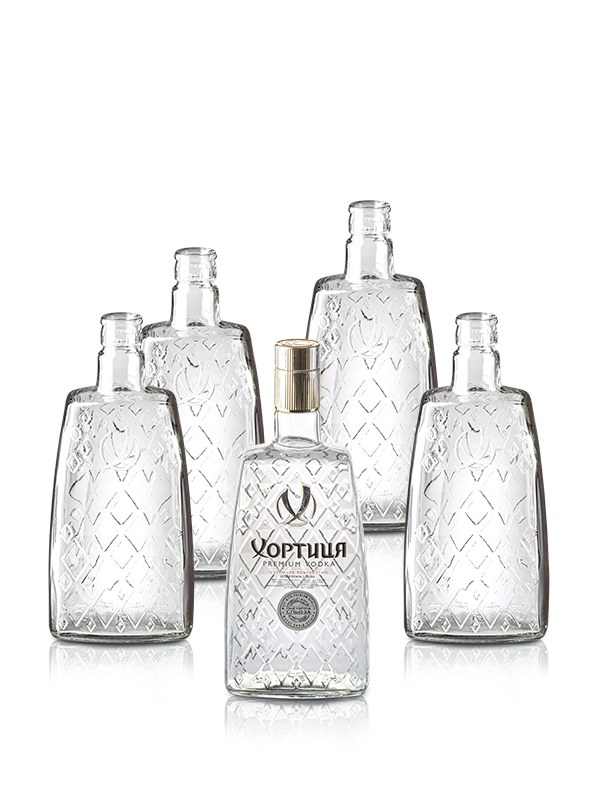
Sparkling
Precious diamonds
The well-known Ukrainian spirit brand Khortytsa has refined the look of its Premium vodka. Diamonds now decorate the 700 ml glass bottles, which are being produced at Vetropack’s Gostomel plant.
The high-quality vodka by the Khortytsa brand has adapted its design. By reworking the original shape of the bottle, we were able to meet this customer request and retain the elegant shape of the white glass bottle. The diamond-shaped engraving now stands out, creating the appearance of diamonds encasing the entire bottle. The lettering and the gold logo have also been refined in the process and the screw cap, which is also gold, completes the overall look.
The recipe combined with technological expertise is what makes this vodka unique; what makes it so popular are the wheat-based alcohol ("wheat tear") and the use of pure water. This spirit will win you over with its freshness: it is crystal-clear yet also smooth to the taste.
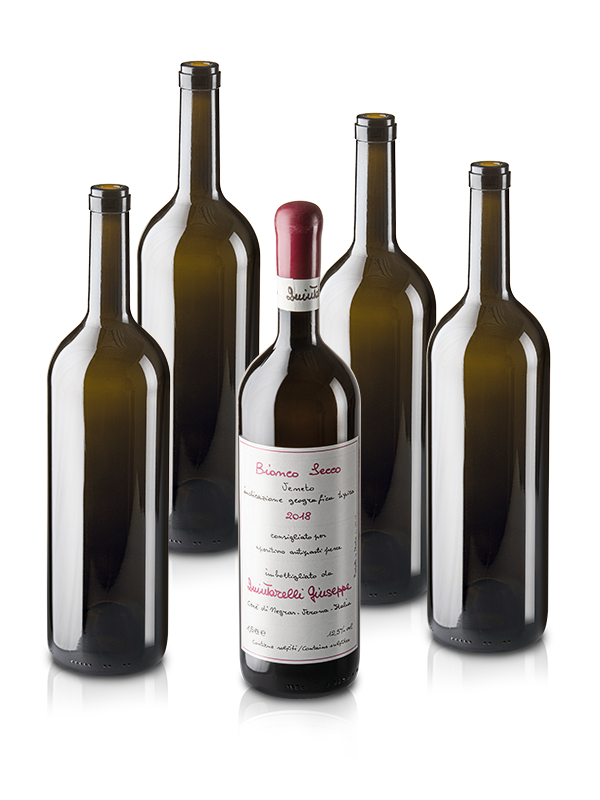
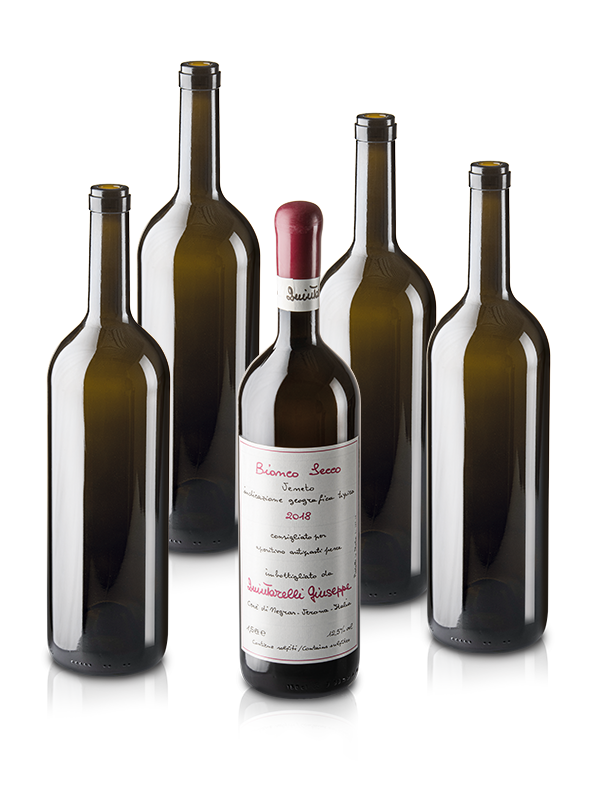
Excellent
Strength of character
The Azienda Agricola Quintarelli is one of the best wineries in Italy. Its Amarone is bottled in the 1.5-litre Bordolese Golia bottle, which is produced at Vetropack’s Trezzano sul Naviglio plant.
Weighing 1.3 kilograms, the cuvée bottle has a long body that culminates in firm shoulders and an equally firm neck ending in a cork finish. Despite its simple shape, the bottle conveys elegance and strength of character at the same time. The handwritten label further emphasises the uniqueness of the product.
Giuseppe Quintarelli was a leading expert on Amarone wine and continues to inspire other winemakers even after his death. The wines do not contain any additives whatsoever and are not filtered in order to preserve their special character. Handicraft and attention to detail guarantee the highest quality for this wine with its rich tradition.
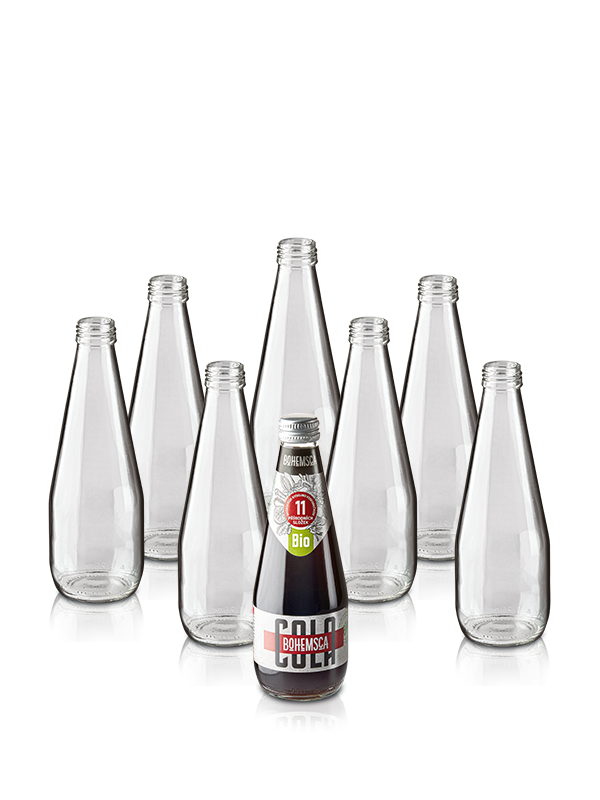
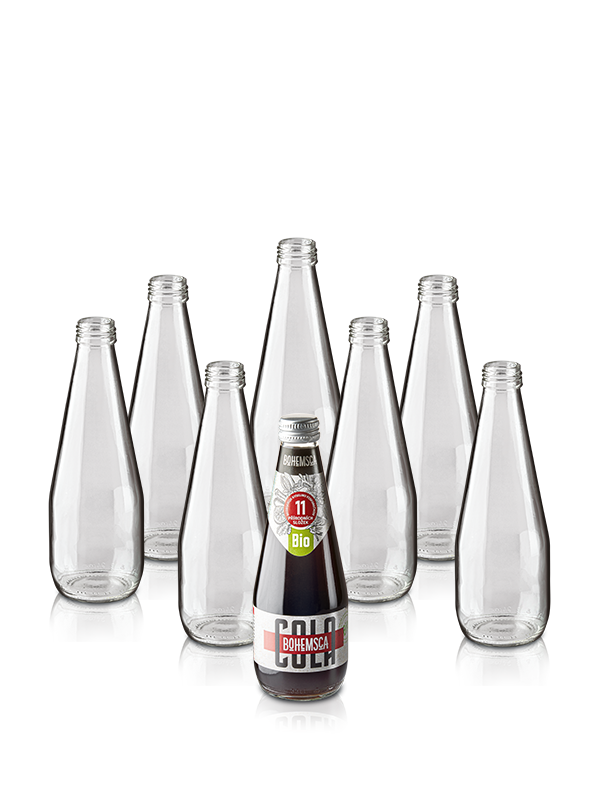
Diverse
Simple beauty
Vetropack Kyjov is producing new 0.33-litre soft drink bottles for the well-known Bohemsca lemonades. The simple shape is reflective of the naturally sourced ingredients.
The white glass bottle stands out because of its clear and simple shape. The proportion of used glass in production amounts to 50 %, emitting significantly less CO2. This ecological aspect suits the Bohemsca products well as they are exclusively made from natural and locally sourced ingredients. The raw products used are also featured on the labels. The practical screw cap makes the refreshing drink a good companion for everyday life and during your free time.
Bohemsca cola, lemonade and tonic water are all free from additives, preservatives and artificial colourings. The drinks are suitable for vegans as well as those with a gluten intolerance and can be enjoyed by adults and children alike. They are an expression of modern life with a hint of nostalgia.
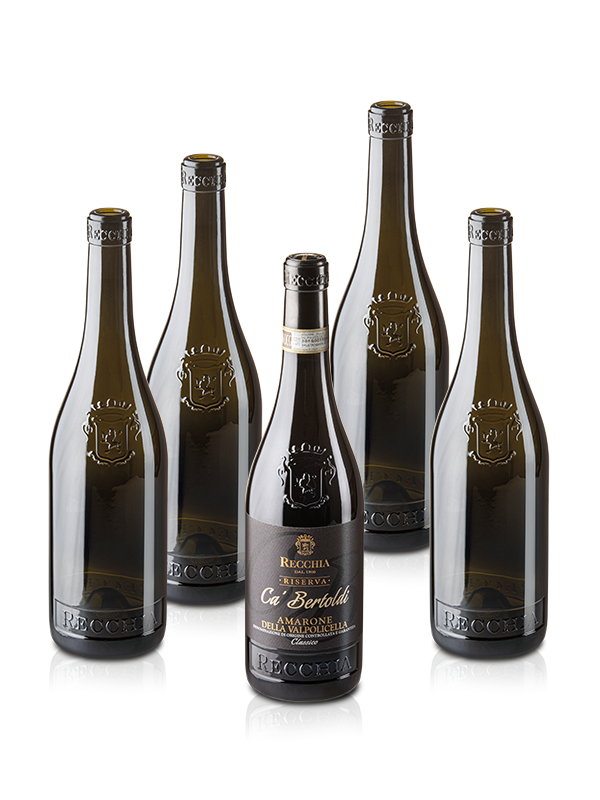
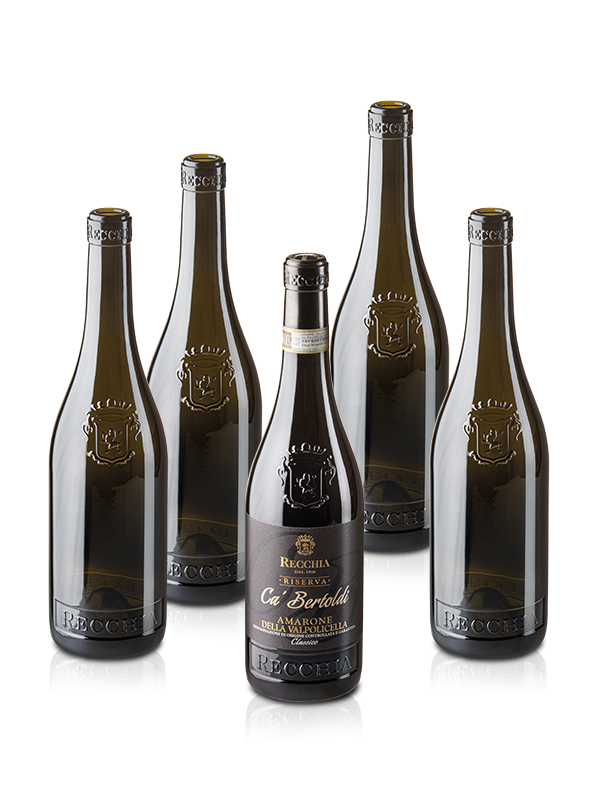
Intense
Expression of pleasure
Vetropack Italia produces this new 0.75-litre bottle in cuvée for the Recchia family business. The design of this bottle has been developed by Vetropack Italia in cooperation with Recchia and Euroglass. The noble bottle is suitable packaging for the full-bodied red wine from the heart of Valpolicella Classico.
The cuvée colour, the cork finish and the long neck, which opens with curved lines on the shoulders and towards the body, give the 0.75-litre bottle a noble look. Engravings enhance the elegant shape: the name Recchia can be seen on the mouth and bottom of the bottle and the company logo is on the shoulder.
Just a few kilometres from Verona, the Recchia family has been producing its wines for over a hundred years. The 90 hectares produce Valpolicella Classico, Valpolicella Superiore, Valpolicella Ripasso Amarone and Recioto della Valpolicella. This year the Recchia winery won first prize at the 67th edition of the Palio del Recioto in recognition of its work.
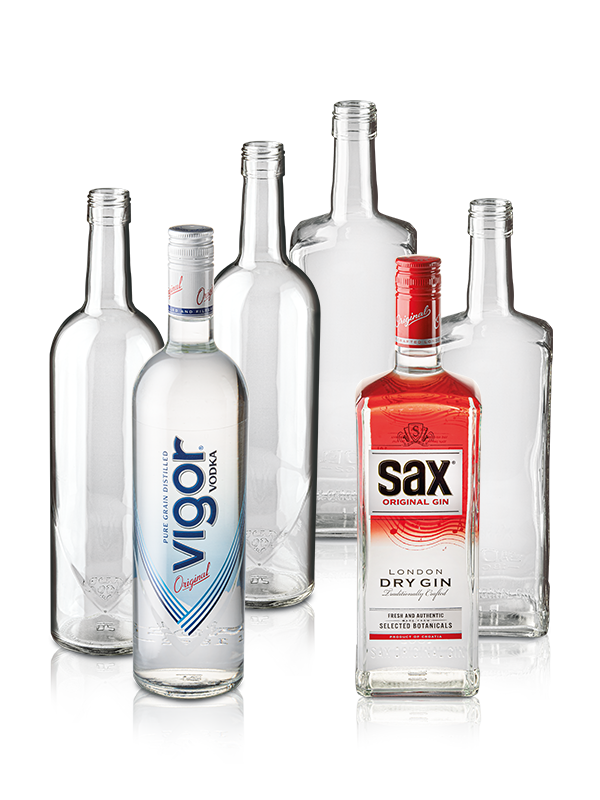
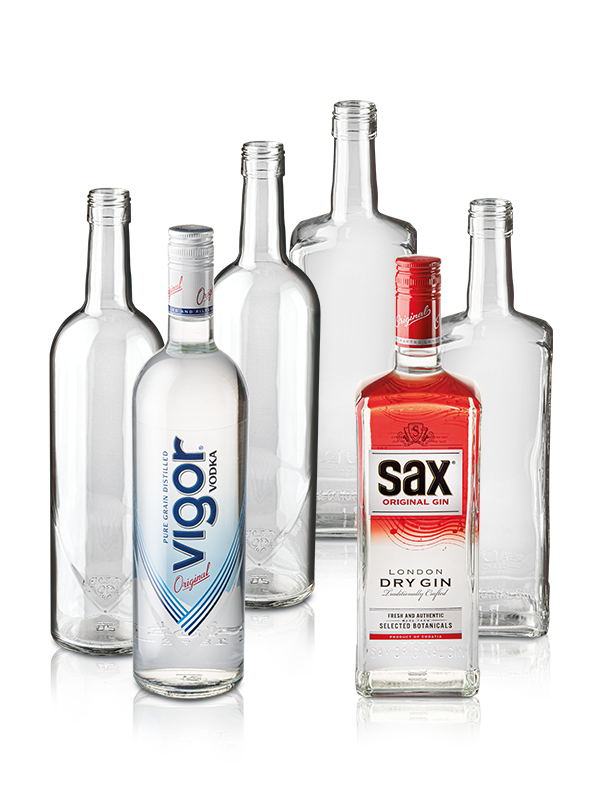
Strong
Comprehensive overhaul
Badel 1862 from Zagreb is the largest and oldest producer of wine and spirits in Croatia. It has recently completed a thorough overhaul of two of its brands – Vigor Vodka and Sax Gin – and the new bottles for these brands are being produced by Vetropack Straža.
Vigor Vodka and Sax Gin have undergone a thorough facelift. In this process, the composition of the ingredients was modified with the help of professional bartenders and mixologists in order to properly meet the needs of the market. Alongside this, the bottles were redesigned and adjusted to global trends on the market.
The bottles’ design is truly eye-catching, from its shape to its cap, right the way through to its labelling. The vodka and gin bottles are both made of white glass and produced in two sizes: 700 ml and 1,000 ml. The gin bottle is striking because of its solid, square shape. The specialists at Vetropack’s Straža plant invested a lot of time in the design work and testing. For the transparent labels (the so-called "no label look"), the glass bottle must be perfect.
The new products are the result of carefully thought-out optimisation measures with the goal of offering the market attractive and modern products of the highest quality. For more than 28 years, Vigor Vodka has been the first choice amongst consumers in Croatia. For production, distillation and ice filtration, Badel 1862 adopts internationally recognised standards.
This website uses cookies to ensure you get the best experience on our website.Privacy statement
- Sustainability Report
- Col1
- Col1
- Col1
- Col1
- Material Topics and Performance Review